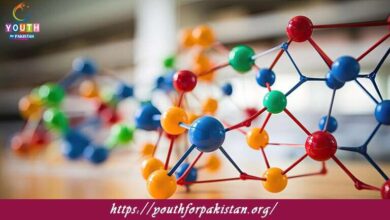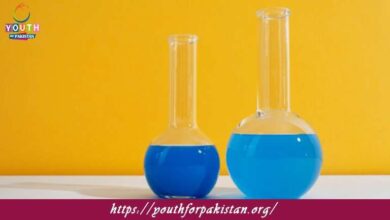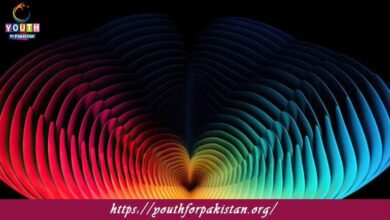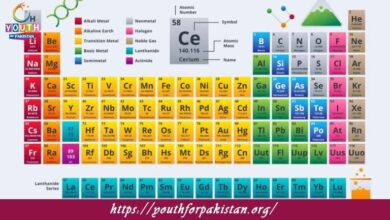12th Class Biology Chapter 27 Quiz with Answers
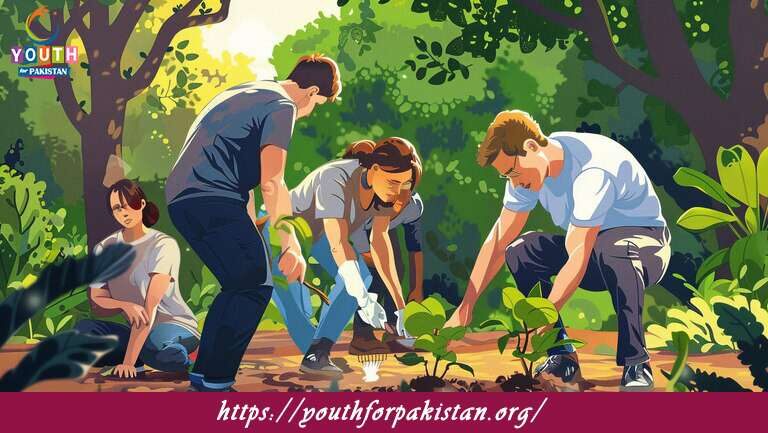
“12th Class Biology Chapter 27 Quiz: Man and His Environment” sheds light on the inter-relationship between the environment and humans. It talks about all the changes taking place in the surroundings due to various human activities. Moreover, the lesson emphasizes living sustainably and promotes nature conservation. For students in their MDCAT Quiz preparations, this becomes increasingly important for further topics involving ecology, pollution, and sustainability in their relationship of man to the environment.
Human Impact on the Environment
Human activities have highly influenced the environment—both positively and negatively. Industrialization, deforestation, and urbanization are some of the major activities that have led to environmental degradation. The ever-growing demand for resources has led to habitat destruction, pollution, and depletion of natural resources.
The destruction of habitats due to the cutting down of forests for timber and agricultural purposes has resulted in threatening biodiversity. The main victims of this have been the tropical rainforests, which are very rich in species. It disrupts ecosystems and leads to the loss of plant and animal life.
Pollution: Pollution from industrial waste, agricultural runoff, and urbanization has severely impacted air, water, and soil quality. Air pollution from vehicles and factories contributes to global warming and respiratory diseases. Water pollution, caused by untreated sewage and industrial waste, affects aquatic life and human health. Soil pollution reduces the fertility of the land, affecting crop production and food security.
Climate Change: Human activities have caused the emission of greenhouse gases, therefore contributing to climate change. The burning of fossil fuels, deforestation, and industrial emissions increase the concentration of carbon dioxide in the atmosphere, which causes global warming. Consequently, this results in rising sea levels, extreme weather events, and changes in precipitation patterns, hence affecting ecosystems and human communities.
Conservation and Sustainable Practices
Sustainable development is the key to ensuring that human progress is not at the expense of environmental degradation; it means using resources in a manner that satisfies the needs of the present without compromising the ability of future generations to meet their own.
Conservation of Natural Resources: Conservation efforts focus on the preservation of natural resources such as water, forests, and wildlife. Forest conservation involves afforestation and reforestation programs, while water conservation involves using water-saving technologies and practices to reduce waste.
Renewable Energy Sources: A shift to renewable energy sources like solar, wind, and hydroelectric power can be instrumental in breaking the dependence on fossil fuels, reducing greenhouse gas emissions, and slowing down climate change. Renewable energy is much cleaner and sustainable, offering a long-term solution to the global energy crisis.
Pollution Control: Better waste management, use of cleaner technologies, and strict environmental regulations can improve the quality of air, water, and soil. Recycling and waste reduction programs also contribute to environmental preservation by reducing the amount of waste sent to landfills.
Human-Wildlife Conflict
With the rise in human populations and subsequent encroachment into natural habitats, the cases of conflicts between humans and wildlife have increased. Human activities, notably agriculture, construction, and urbanization, have resulted in the invasion of wildlife habitats, which consequently leads to a loss of biodiversity and displacement of animal species. Protection of such endangered species and their habitats is a priority for biodiversity conservation and ecosystem health.
Role of Education in Environmental Awareness
Education is important for raising awareness of the environment. The more people are educated on the need for conservation and practices in sustainability, the more the society will engage in protecting the environment. Environmental education programs in schools and communities aim to create awareness of the impact of human activities on the environment and foster responsible behavior.
For students preparing for the MDCAT Quiz, this chapter gives them insight into how human activities change the environment. Knowledge of pollution, conservation efforts, and the need for sustainability will help answer questions on key areas concerning human-environment interaction.
MDCAT Quiz: Human and Environmental Interaction
Test your knowledge with the MDCAT Quiz on human-environment interactions. The quiz covers key topics such as pollution, climate change, sustainable practices, and conservation efforts. It’s a perfect way to assess your understanding and improve your performance in the upcoming exams.
- Test Name: 12th Class Biology Chapter 27 Quiz
- Type: Quiz Test
- Total Questions: 30
- Total Marks: 30
- Time: 30 minutes
Note: Answer of the questions will change randomly each time you start the test, once you are finished, click the View Results button.
Free Flashcards on Human and Environmental Interactions
To assist your preparations, use our free flashcards on the topics in Chapter 27: Man and His Environment. These flashcards will aid you in revising vital concepts related to human impact on the environment, sustainability, and conservation—fast. Flashcards are great at reinforcing key information, specifically when it comes to MDCAT-related questions.

What is the term for the process by which habitats are destroyed or altered to make way for human activities?
Habitat destruction

What is the term for the process by which pollutants accumulate in the tissues of organisms as they move up the food chain?
Biomagnification

What is the term for the process by which pollutants accumulate in the tissues of organisms as they move up the food chain?
Biomagnification

What is the term for the process by which pollutants accumulate in the tissues of organisms as they move up the food chain?
Biomagnification

What is the term for the process by which pollutants accumulate in the tissues of organisms as they move up the food chain?
Biomagnification

What is the term for the process by which pollutants accumulate in the tissues of organisms as they move up the food chain?
Biomagnification

What is the term for the release of greenhouse gases into the atmosphere due to human activities?
Greenhouse effect

What is the term for the process by which pollutants accumulate in the tissues of organisms as they move up the food chain?
Biomagnification

What is the term for the process by which habitats are destroyed or altered to make way for human activities?
Habitat destruction

What is the term for the process by which pollutants accumulate in the tissues of organisms as they move up the food chain?
Biomagnification

What is the term for the process by which waste materials are converted into reusable materials?
Recycling
Experience the real exam environment with our expertly designed collection of over 25,000 MCQs MDCAT Mock Tests.


